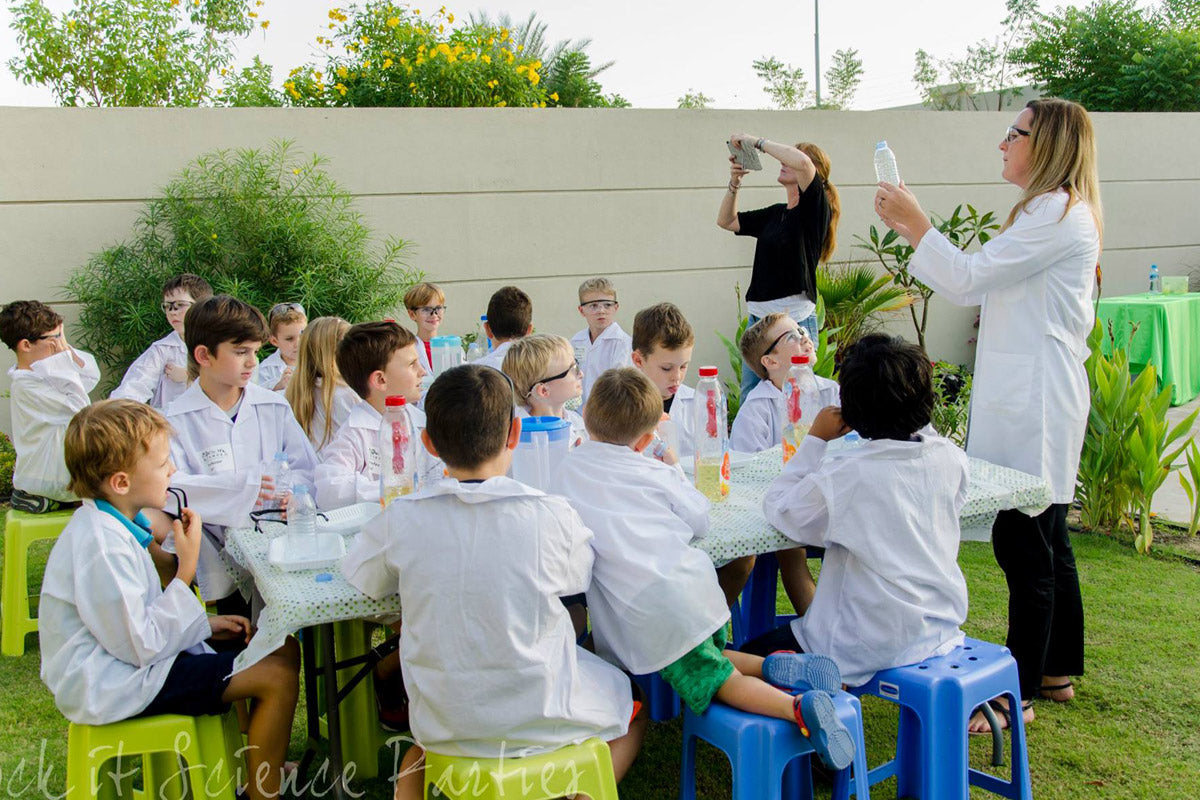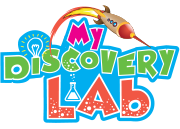
STEAM Learning - Question & Answer time with Nichola Fisher, our Founder
What inspired you to start My Discovery Lab in the first place?
The journey began for me when I left my teaching position, after winning an Entrepreneurial award, to set up Rock it Science offering science themed events, workshops and shows. Very quickly I realised that children could be inspired with the simplest of Science activities, those that make them want to look at the world they live, ask questions and try to find answers to how things work – the very essence of Science! At school, the curriculum is very knowledge driven and the true skills of thinking like a scientist following the scientific method in investigations is limited. This led me to develop My Discovery Lab where my idea to ‘box up’ discovery based activities with all the kit included could help parents support their children on this marvellous learning journey at home.
Each month we release a new box that comes with a magazine and 5 experiments to try that follows a different theme each month. As children work through these experiments, they learn as they go and develop those all-important Scientific skills with our ‘Explore more’ section. Our boxes have been designed for 3-5, 6-9 and 10-14 years so that the activities and content matches their curriculum and stage of learning. Learning things in context and developing a whole range of skills is a key feature of our specially designed activities. As such we have made these STEAM (Science, technology, engineering, arts and mathematics) activities which allows children to not only learn Science but build, create, design, test and calculate. Our main priority is to show that developing these skills can be done in such a fun way that families can delight and discover together!
Why is STEAM so important to you?
I am a passionate about encouraging STEAM learning experiences for young children. With a rapidly changing world and the advances in our current use of technology – how do we prepare our young children for the future? The answer lies in equipping them with the skills for the 21st century by training them to effectively think for themselves, to solve problems by creatively using new ideas.
I have designed and run a whole range of STEAM teacher training courses and have been signed up by British Schools Middle East (BSME) to run these in the coming months.
How do you keep your own kids interested in learning and Science?
My three children are my product testers for My Discovery Lab and they get all the fun of trialling the activities. My kitchen table is always full of a mix of interesting things for them to experiment with. I also use themed experiments like they making crystallised snowflakes for our tree at Christmas and do eggxcellent experiments at Spring time.
Most importantly I engage them in conversations when we discover something whether at home or when we are out. Whether it is a spider making a beautiful web, leaves turning a different shade of colour on trees, the position of the sun in the sky affecting our shadows. If they ask a question as to how something works, I let them research and find out the answers to these questions so they take greater ownership in their learning process. This is important for me, that they develop their own enquiry skills and learn to look at this wonderful world we live in and ask WHY things behave the way they do.
I believe that a love for learning should be nurtured and when you can inspire children with an activity that has relevance to them, it naturally happens. For me it not important for my children to be top of the class, but rather that they can use their brains effectively to solve problems and think out of the box. This will help them in the future more than being able to regurgitate knowledge in examinations.
Typically, in the past, there have been less girls interested in STEAM subjects. How and why has that changed in your option?
When I started teaching 12 years ago, it used to be that mostly girls did Biology and boys did physics. This has defiantly changed as roles have grown in the different employment sectors. Opinions have changed towards gender stereotyped roles too which is a positive thing.
At My Discovery Lab we provide activities that are for both boys and girls. There is no gender separation of activities and why should there be? Whether it is designing and building a bridge, designing an aerodynamic rocket or growing a seed to a flowering plant, both boys and girls can enjoy this equally.
As a teacher, what do you think is most important for our children to focus on now particularly when considering how uncertain the future workplace is?
I think we need to remain open minded about the future workplace. Yes technology is advancing at an amazing rate but if we equip children with the skills to think for themselves, they will help lead us forward. To think that some of our children may be the top minds of the future is exciting.
Schools are making progress in this area by encouraging more skills based development. My son’s own school has now set up a STEAM lab where they are learning programming and coding in exciting activities.
As a mum, what do you imagine for your own children’s future careers?
This is simple, all I want for them is to follow their own path for their future career. As they grow and learn they will find something they are truly passionate about and I hope that they use this to do something very rewarding. If they work hard, I will be proud of them whatever they choose.
Even with tricks like your box of fun activities, what would you say to parents who are struggling to keep their kids interested and focused on science based activities?
I may be biased, but it is hard to imagine any child that cant be interested in Science. Its about how you engage them that hooks them in. If they love football, then you need to get them to think about the design of their football boots, there shape and the special materials used to make it. If they love baking you need to ask them about the chemical reactions that happen in the process, if they love dancing you can ask them about how the body is able to move the way it does. Create relevance to our everyday life and children will want to learn more.
When it comes to helping your child figure out their place in the world, what advice would you give our parents?
Let children be children. Let them play, create and discover even if that means that they make a mess in the process. This is part of the learning process. Sometimes when we do events, we have nannies who come and clean children’s hands every minute while doing experiments, which is frustrating to see. Let them get some slime on their hands and watch it drip off, let them try to roll it in a ball to explore its properties and when finished we can clean and tidy up (which is also part of the learning process)!
Children will find their own path in life and our job is to support and nurture them on this journey.
